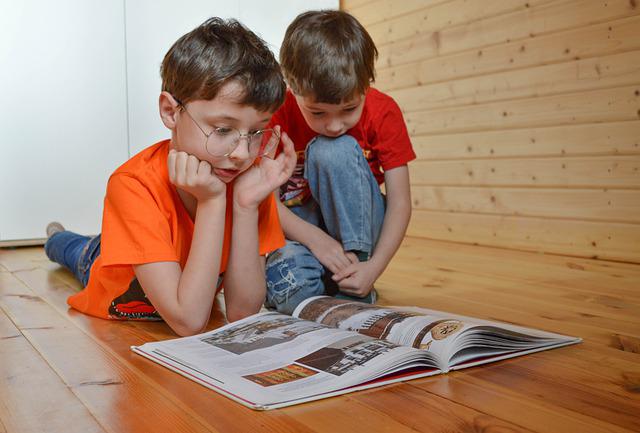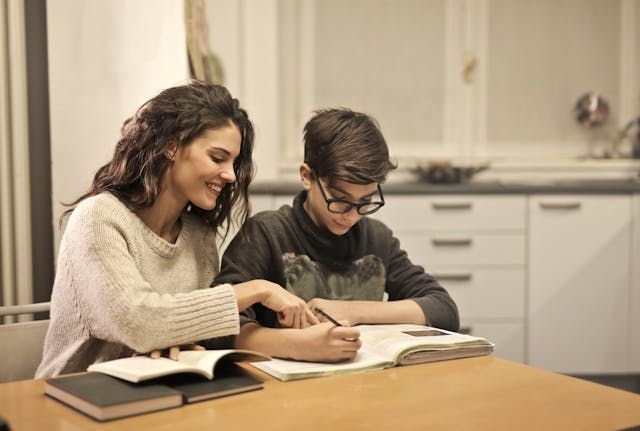How to Help Your Child Cope with Losing a Friend
Has your child’s best friend moved away? Losing a friend can be very traumatic for a child. They may feel lost without their friend. Friendships come and go throughout life. Learning how to deal with it is a skill every child needs. Fortunately, there are simple things you can do to ease the stress on your child.
I’m Virginia-based school assembly performer Joe Romano. Each year I perform my fun and amazing assembly programs for schools in VA, NJ, CT, NY, PA, MD, and our nation’s capital. I write articles like this to help busy parents and school administrators.
Navigating the highs and lows of friendships can be hard for kids. Friendship may end due to a disagreement, growing apart, different peer groups, or other reasons. But when a friend is abruptly taken away due to a move, it’s especially difficult. Let’s explore some ways you can help your child when their friend moves away.
Help Your Child Cope with Losing a Friend Tip #1: Talk About It
If your child was close to their friend, they’ll obviously miss them. They may feel a mix of emotions from sadness, anger, abandonment, etc. And some kids may not want to discuss their feelings. Make sure your child knows you can come to them to talk. Ask them how they feel. Be prepared for any number of responses.
Regardless of how your child feels, validate their emotions. Let them know it’s okay how they feel. You can also serve as a good example to your child. As their parent, you likely had plenty of time to get to know their friend.
If you feel sad about the friend moving away. Tell your child. It may help them realize they are not the only ones suffering.
Help Your Child Cope with Losing a Friend Tip #2: Throw a Party
When a friend moves away, your child may feel better with closure. Consider having a going away party for the friend. Invite mutual friends of the friend and your child. Give everyone a chance to say goodbye. Your child may be able to bond with other kids who are sad the friend is leaving.
Reminding your child that other kids are sad too helps them sympathize with others. They are not the only one feeling sad. Your child can learn a powerful lesson in empathy this way.
Help Your Child Cope with Losing a Friend Tip #3: Create a Keepsake
You can help your child remember their good times with this friend. Purchase a scrapbook and fill it with pictures of the two of them together. Or you can create a memory box and fill it with mementos your child shared with this friend. Are you handy with iMovie or other video editing software? Create a collage of videos and pictures celebrating all the great times your child spent with their friend.
Help Your Child Cope with Losing a Friend Tip #4: Help the Friend Adjust
Losing a friend is a perfect opportunity to help your child understand empathy. While your child is sad their friend is moving away. So is the friend. And they have to adjust to moving to a new area. They have to go to a new school, make new friends, and adjust to an entirely new life.
Sit down with your child and research the friend’s new hometown. Look for fun things they can do when they arrive. If they enjoy reading, find the addresses of local libraries. If they love animals, find the local zoos or pet stores. Help them make the transition. Doing so will help your child understand they are not the only one feeling sad.
Help Your Child Cope With Losing a Friend Tip #5: Stay in Touch
We can stay in touch easily with anyone in the world. Thanks to technology, we can see and hear from someone every day. And we can do this without racking up astronomical long-distance phone bills. Tools like Zoom or Google Meet let us stay connected with loved ones far away easily.
Remind your child that technology makes it a lot simpler to connect, no matter how far away they are.
Inspire Good Character in Your Entire School
When a friend moves away, children have the opportunity to learn important lessons in sympathy, empathy, and more. These are touchstones of good character. My “The Magic in You” Character Education school assembly communicates valuable lessons through amazing magic, join-in fun, laughter, and more. Contact me today to find out more!
SHARE POST


